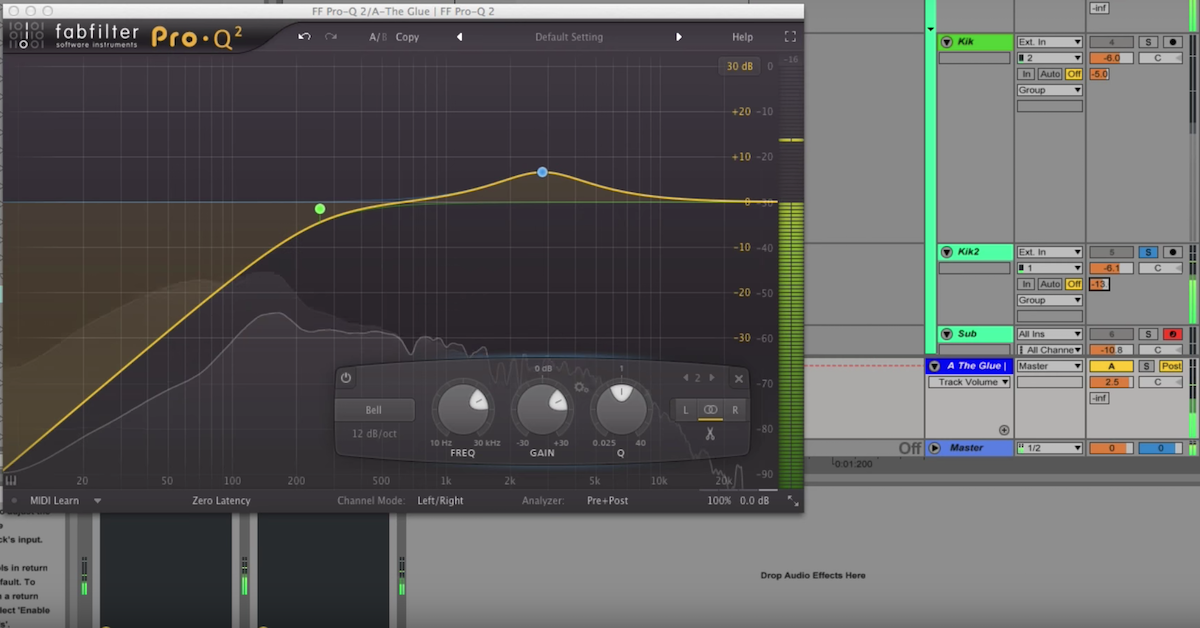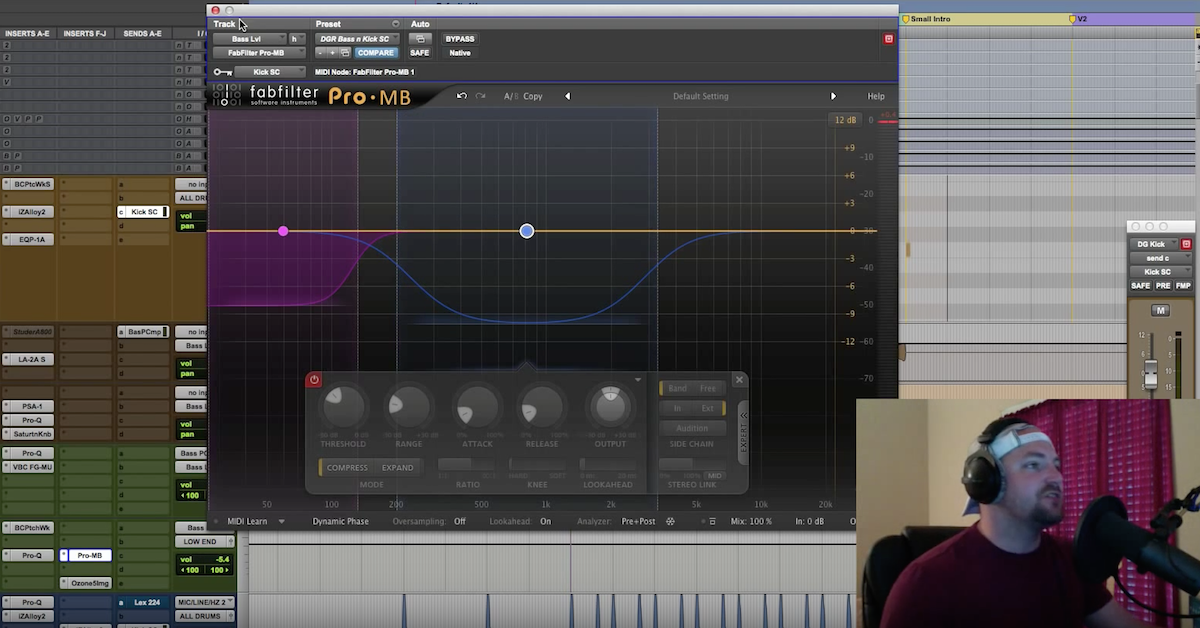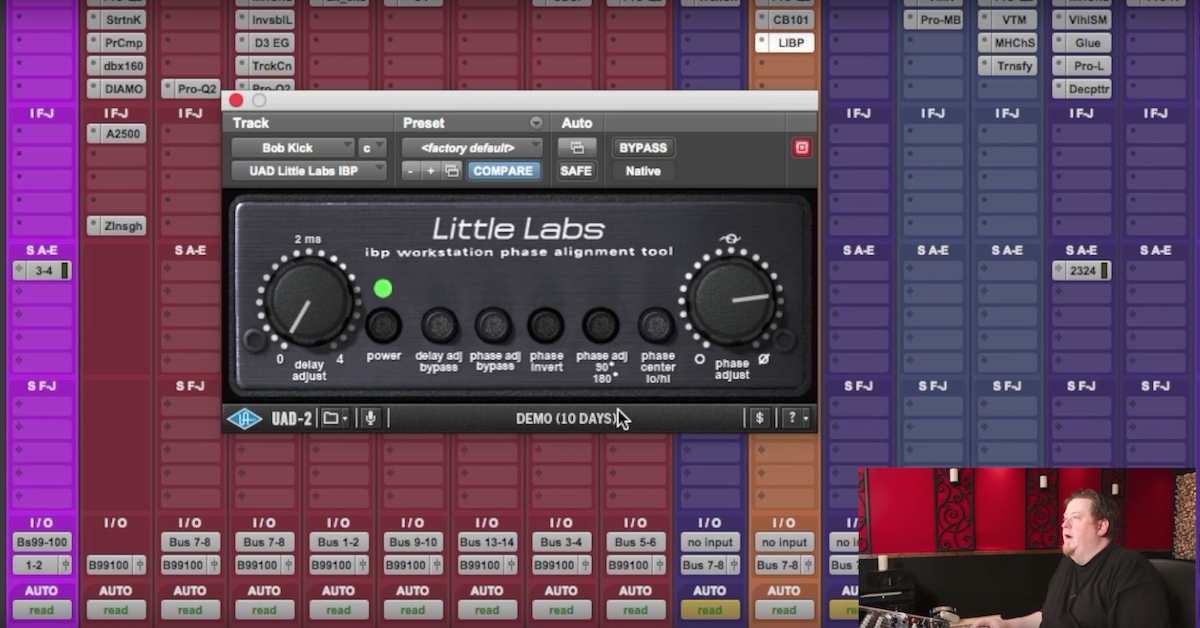Review: ULTRAKICK — Kick Drum Synth
Article Content
Everyone loves a solid kick sound. It’s the driving force in a multitude of beat-based genres and there are a million samples available ranging from every conceivable acoustic drum to synthy techno heartbeats. And there are many techniques to alter and enhance those samples via compression, transient designers, EQ, sidechain compression, sidechain-activated gated sine waves, among others.
The downside of having so many choices is that you have too many choices. It can take hours auditioning or processing kick samples looking for just the right thump.
But sometimes, I have an irresistible urge to start from scratch. To strip things down to the bare essentials and build from there. Daan Pothoven, the creator of the Max for Live device, ULTRAKICK, has provided the perfect tool for this situation. The device is designed for one thing — making kicks. It’s entirely synth-based so no samples are used in the process.
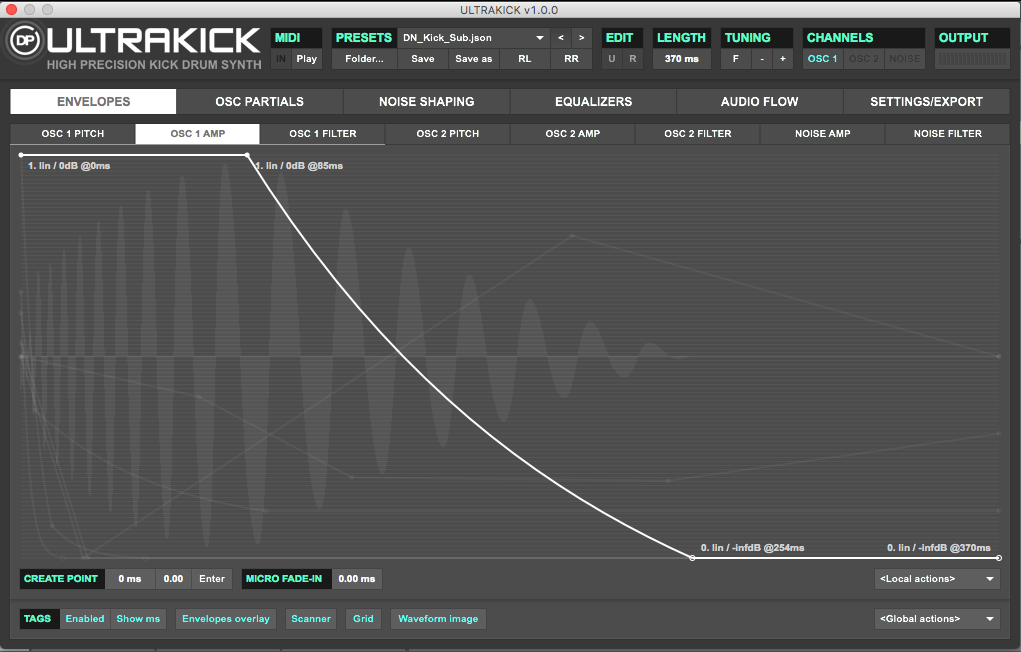
Oscillators
The sound engine uses two main oscillators with up to eight partials each with presets that generate square, triangular and sawtooth shapes based on the amplitudes of the harmonics or for randomization. Harmonic ratios can also be changed manually.
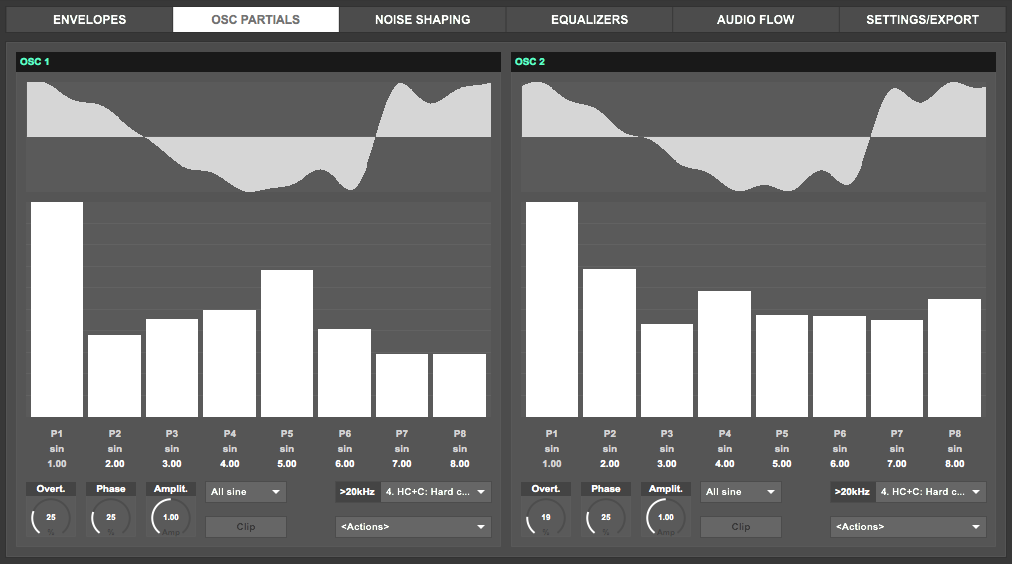
Noise
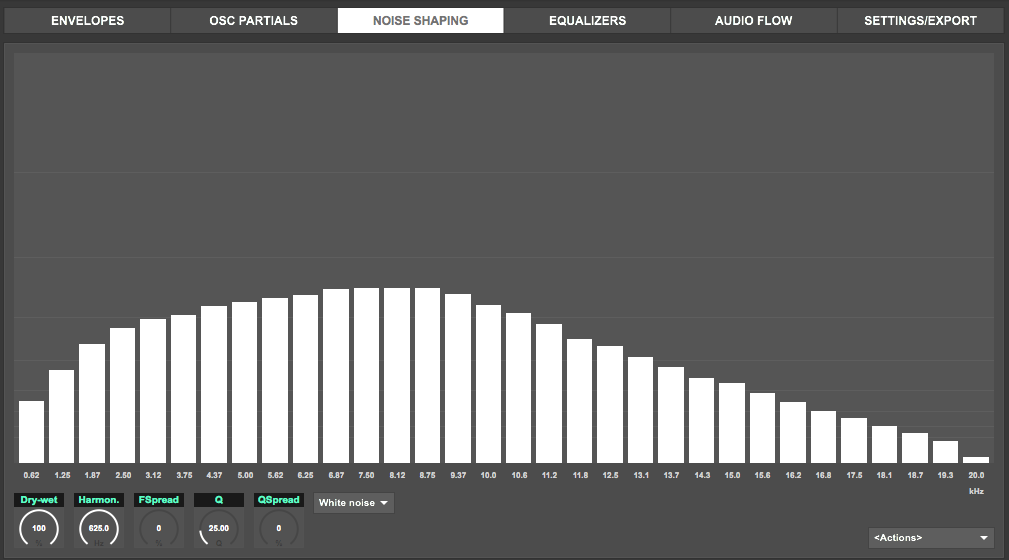
The Noise section includes White and Pink settings and allows for some unique shaping and tweaking parameters. You can set the fundamental frequency and natural harmonic frequencies of the 32 bandpass filters via the Harmonic Dial.
But what’s interesting is the FSpread Dial, which “introduces variations in frequency…every time the sound is triggered” — a nice way to create subtle variety with every kick. The QSpread controls work in a similar fashion for bandwidth. There are also randomizing controls in a drop down menu for exploring the serendipitous.

Envelopes
The robust Envelope Section of this device really takes it to the next level. There are eight distinct envelopes that can be applied to pitch, amplitude and filter settings for each oscillator, and amplitude and filter settings for the noise generator. They can all be visible simultaneously by clicking the Envelope Overlay button.
Amplitude and pitch change made in the envelope are immediately reflected in the underlying waveform and nodes can display useful information relating to frequency, amplitude and time when Tags are enabled. A drop down menu offers more randomization, a reverse function and line smoothing control.
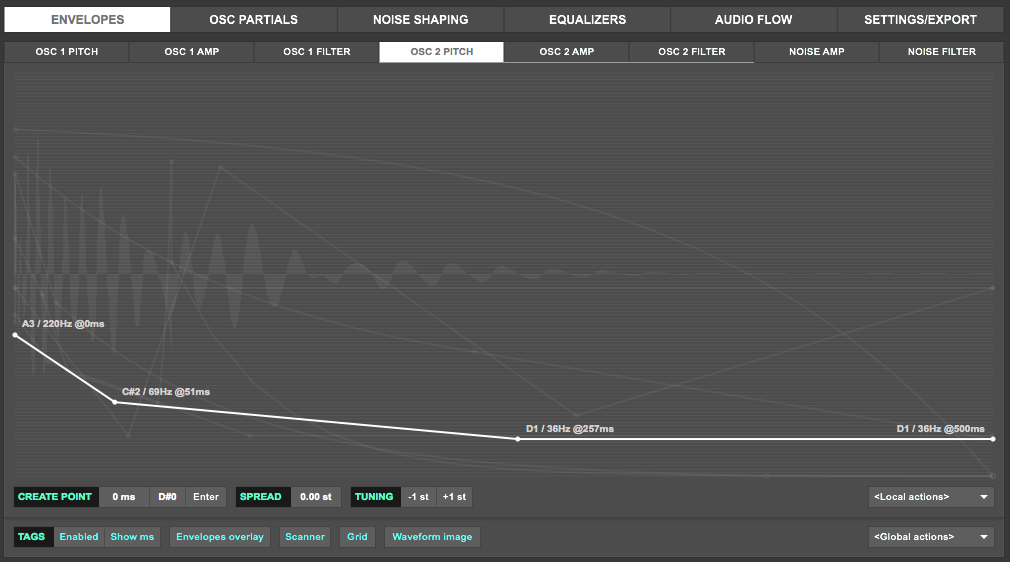
EQ
There is a separate Equalizer for each Oscillator section and the Noise generator with Low and High Shelf settings and three Peak/Notch filters.
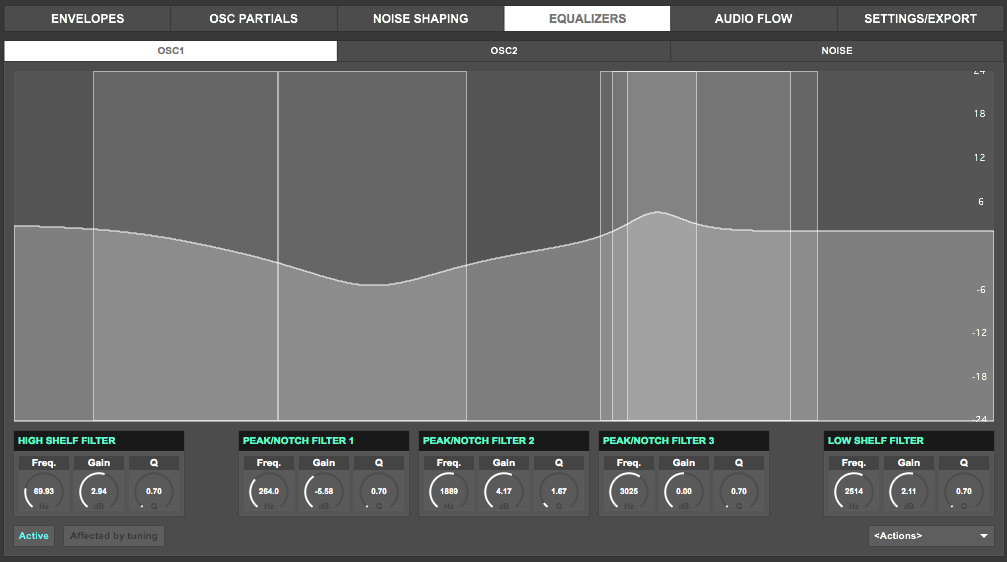
Routing and Overdrive
The Audio Flow section exposes the signal flow of the device and offers additional overdrive and filtering possibilities between the Oscillator/Noise sections and Equalizer sections. A limiter is placed directly before the final output.
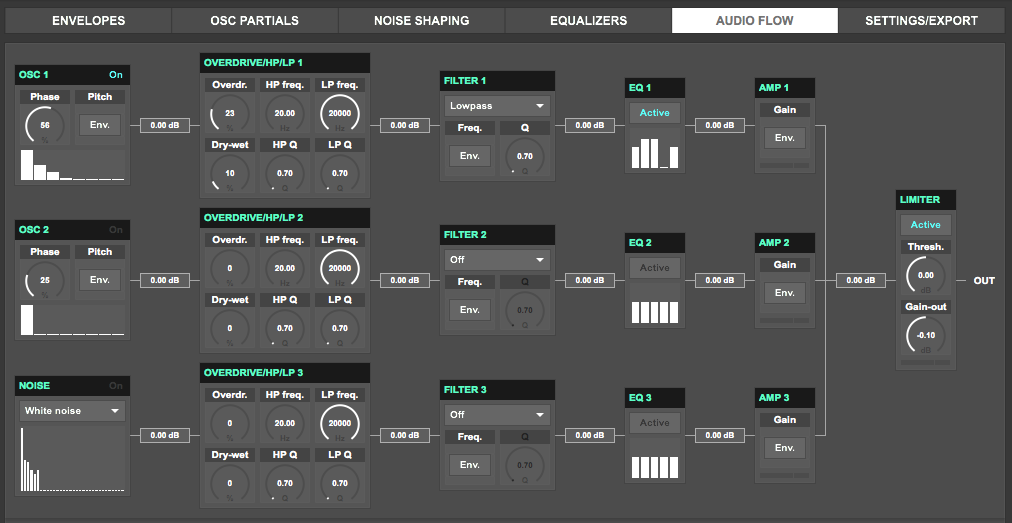
Settings/Export Tab and Quasi-Metadata
When you save a preset you have the ability to include comments and the date and time is also saved automatically. I wish all devices and effects had this capability!
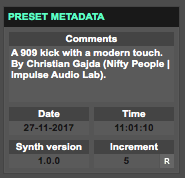
MIDI Velocity mapping allows for fixed velocity, dynamic (1:1) and inverse mapping.
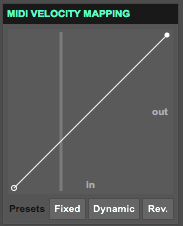
Other information like Tuning Reference and Waveform redraw settings can also be found here.
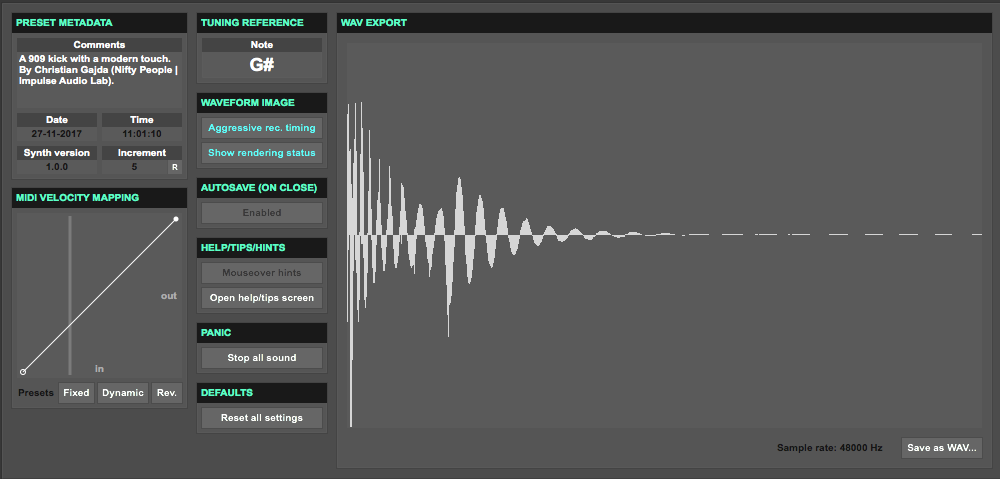
The Sound
How does it sound? That’s up to you and that’s really the point. This device is not about rifling through a gazillion kick sounds to find the right one for the right circumstance. It’s about imagining what you want and crafting a sound from the ground up. The GUI is intuitive and responsive, and creating sounds is much like sculpting with clay — a fluid process of addition and subtraction.
And if you’re not sure what it is you’re looking for, there’s enough randomizing capabilities to surprise and delight. At the ridiculous price of $36 (£23.99 / €30.00) this thing pays for itself in the first 15 minutes. Check out numerous examples and walkthroughs at the Isotonik Studios site.
———–
Check out my other articles, reviews and interviews
Follow me on Twitter / Instagram / YouTube



